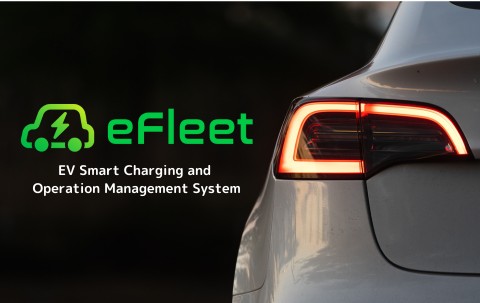EV Smart Charging and Operation Management System "AAKEL eFleet"
Technology / Service Summary
Introducing EVs towards decarbonization, we optimize EV charging and operational management by combining systems such as dynamic pricing, fleet management, EMS, etc., along with smart charging.
Purpose
We aim to solve the challenge of transitioning from gasoline vehicles to EVs and promote the widespread adoption of EVs. Targeting businesses and local governments, our system combines Dynamic Pricing, Fleet Management, EMS, etc., along with Smart Charging to optimize EV charging and operational management. This is a first-of-its-kind system in Japan that enables automatic centralized management.
Feature
・Visualize the charging status
You can quickly check which charger is charging which EV, when, and for how long.
・Optimal control
Schedule charging during environmentally and economically favorable periods to ensure an efficient use of the needed power, controlling the chargers accordingly.
・Measure CO2 emissions
Through also AAKEL eCarbon, it is possible to measure and visualize CO2 emissions.
Effect
Reduction proportional to the number of EVs and charging stations:
・Daily charging management for EV operation administrators
・Study charging amount in kWh through a CSV file of charging records
・Generate remote-controlled automatic charging schedules
・Centralize the management, independent of the manufacturer of EVs and chargers
・Electricity cost reduction through peak cut&shift
Controlled Substance
Applicable Regions / Countries
- Japan
- Southeast Asia
Accomplishments
・Providing eFleet as the platform for the charging management system OPCAT offered by Chubu Electric Power. In the future, it aims to contribute to the optimization of bus and truck travel routes.
・Conducting joint demonstration experiments for an EV smart charging service utilizing Mitsubishi Auto Lease's company-owned vehicles. The goal is to address challenges centered around EV charging management.
Reference URL
Related SDGs Goals
- 7. Affordable and Clean Energy
- 8. Decent Work and Economic Growth
- 9. Industry, Innovation and Infrastructure
- 11. Sustainable Cities and Communities
- 12. Responsible Consumption and Production
- 13. Climate Action
- 17. Partnerships to achieve the Goal




